Monalisa Sarma
Clinically Calibrated Machine Learning Benchmarks for Large-Scale Multi-Disorder EEG Classification
Dec 27, 2025Abstract:Clinical electroencephalography is routinely used to evaluate patients with diverse and often overlapping neurological conditions, yet interpretation remains manual, time-intensive, and variable across experts. While automated EEG analysis has been widely studied, most existing methods target isolated diagnostic problems, particularly seizure detection, and provide limited support for multi-disorder clinical screening. This study examines automated EEG-based classification across eleven clinically relevant neurological disorder categories, encompassing acute time-critical conditions, chronic neurocognitive and developmental disorders, and disorders with indirect or weak electrophysiological signatures. EEG recordings are processed using a standard longitudinal bipolar montage and represented through a multi-domain feature set capturing temporal statistics, spectral structure, signal complexity, and inter-channel relationships. Disorder-aware machine learning models are trained under severe class imbalance, with decision thresholds explicitly calibrated to prioritize diagnostic sensitivity. Evaluation on a large, heterogeneous clinical EEG dataset demonstrates that sensitivity-oriented modeling achieves recall exceeding 80% for the majority of disorder categories, with several low-prevalence conditions showing absolute recall gains of 15-30% after threshold calibration compared to default operating points. Feature importance analysis reveals physiologically plausible patterns consistent with established clinical EEG markers. These results establish realistic performance baselines for multi-disorder EEG classification and provide quantitative evidence that sensitivity-prioritized automated analysis can support scalable EEG screening and triage in real-world clinical settings.
Modeling User Behaviour in Research Paper Recommendation System
Jul 16, 2021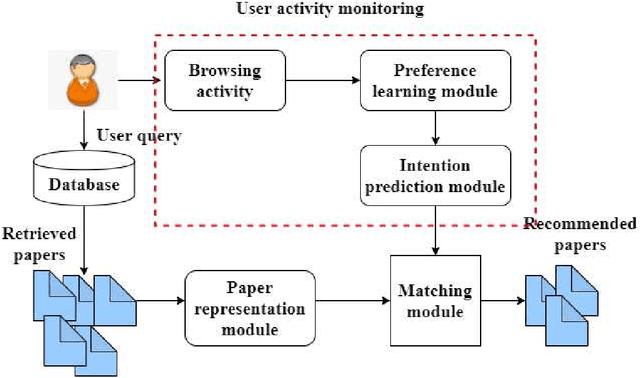



Abstract:User intention which often changes dynamically is considered to be an important factor for modeling users in the design of recommendation systems. Recent studies are starting to focus on predicting user intention (what users want) beyond user preference (what users like). In this work, a user intention model is proposed based on deep sequential topic analysis. The model predicts a user's intention in terms of the topic of interest. The Hybrid Topic Model (HTM) comprising Latent Dirichlet Allocation (LDA) and Word2Vec is proposed to derive the topic of interest of users and the history of preferences. HTM finds the true topics of papers estimating word-topic distribution which includes syntactic and semantic correlations among words. Next, to model user intention, a Long Short Term Memory (LSTM) based sequential deep learning model is proposed. This model takes into account temporal context, namely the time difference between clicks of two consecutive papers seen by a user. Extensive experiments with the real-world research paper dataset indicate that the proposed approach significantly outperforms the state-of-the-art methods. Further, the proposed approach introduces a new road map to model a user activity suitable for the design of a research paper recommendation system.
Medical Information Retrieval and Interpretation: A Question-Answer based Interaction Model
Jan 24, 2021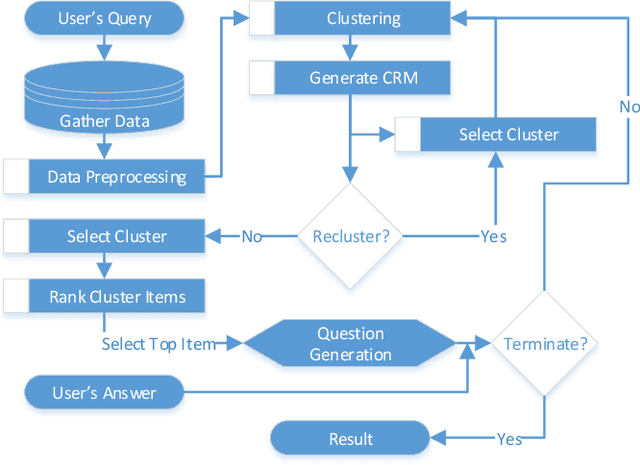



Abstract:The Internet has become a very powerful platform where diverse medical information are expressed daily. Recently, a huge growth is seen in searches like symptoms, diseases, medicines, and many other health related queries around the globe. The search engines typically populate the result by using the single query provided by the user and hence reaching to the final result may require a lot of manual filtering from the user's end. Current search engines and recommendation systems still lack real time interactions that may provide more precise result generation. This paper proposes an intelligent and interactive system tied up with the vast medical big data repository on the web and illustrates its potential in finding medical information.
Computational Intelligence Approach to Improve the Classification Accuracy of Brain Neoplasm in MRI Data
Jan 24, 2021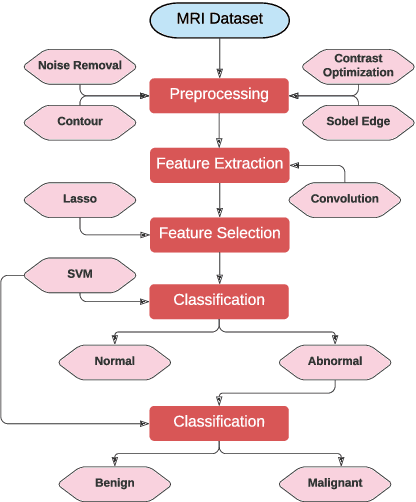
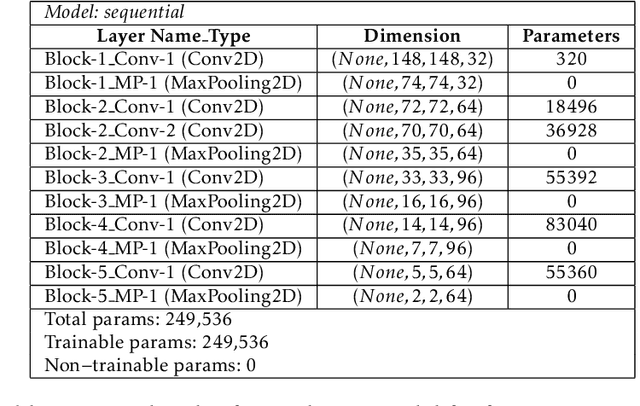
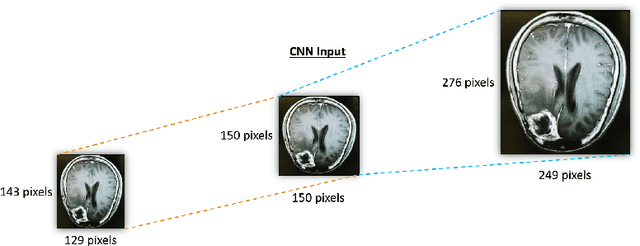

Abstract:Automatic detection of brain neoplasm in Magnetic Resonance Imaging (MRI) is gaining importance in many medical diagnostic applications. This report presents two improvements for brain neoplasm detection in MRI data: an advanced preprocessing technique is proposed to improve the area of interest in MRI data and a hybrid technique using Convolutional Neural Network (CNN) for feature extraction followed by Support Vector Machine (SVM) for classification. The learning algorithm for SVM is modified with the addition of cost function to minimize false positive prediction addressing the errors in MRI data diagnosis. The proposed approach can effectively detect the presence of neoplasm and also predict whether it is cancerous (malignant) or non-cancerous (benign). To check the effectiveness of the proposed preprocessing technique, it is inspected visually and evaluated using training performance metrics. A comparison study between the proposed classification technique and the existing techniques was performed. The result showed that the proposed approach outperformed in terms of accuracy and can handle errors in classification better than the existing approaches.
 Add to Chrome
Add to Chrome Add to Firefox
Add to Firefox Add to Edge
Add to Edge